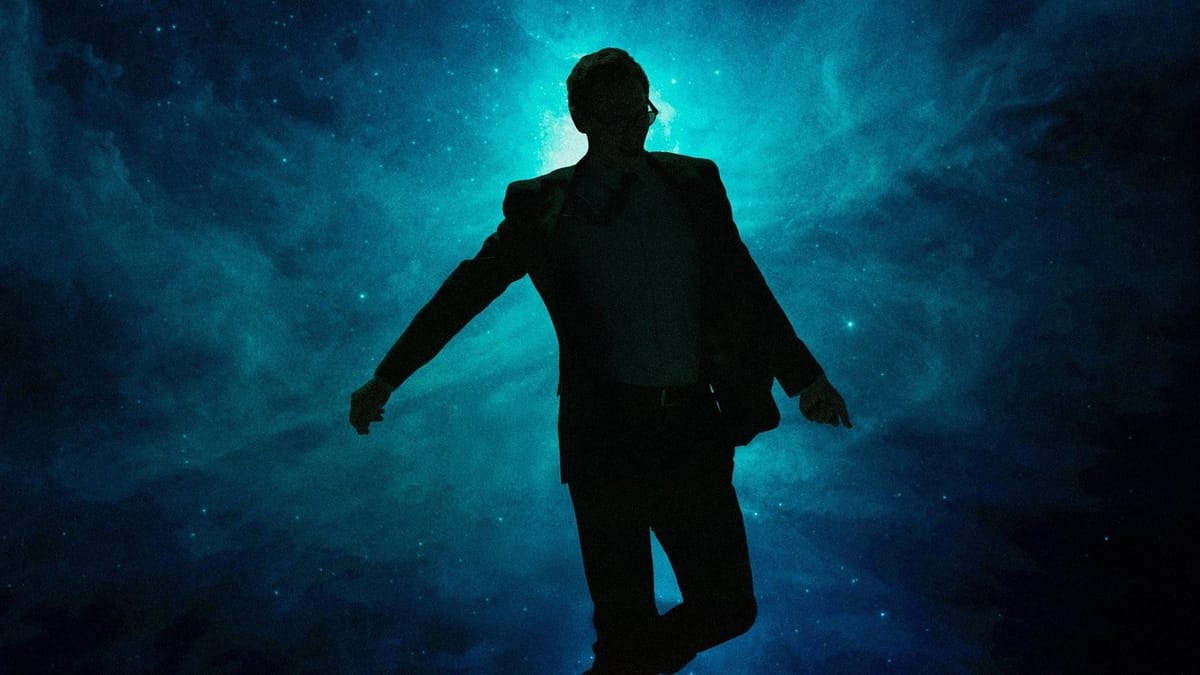The Life of Chuck
"I am wonderful, I deserve to be wonderful, and I contain multitudes."

I don't think I've ever seen a movie quite like The Life of Chuck.
There's no one part that's unique, but its combination of uncommon storytelling elements make for an experience like no other. Chapter headings are not rare, nor is presenting them out of order. However, outside of an anthology, it's rare for a film to spend so much time following someone (Marty, played by Chiwetel Ejiofor) who is not to remain the ultimate main character. Charles Krantz eventually shows up in the first segment (Act Three, of course), first referenced in name, then depicted, and finally appears in the background. We don't actually meet him until Act Two, at which point he's the driving force in an ensemble, before properly becoming the main character in Act One. We spend a short (but memorable) time with him as an adult played by Tom Hiddleston, and a brief scene or two at the end in which Jacob Tremblay takes the baton. But we primarily see him as a pre-teen, where the unknown Benjamin Pajak absolutely lights up the screen. The one constant is the voice of the unseen narrator (Nick Offerman), used to color in the plot outside of the immediate experience of the characters on screen.
The movie isn't quite as convoluted as that sounds, although it's hard to overemphasize the bizarre fact of Act Two making such a clean break from Act Three. Halfway through the movie, we still don't have a clean hold on the film and what it's driving at. But that's okay, because by then its grandeur has taken hold, its tendency to wonder about our place in the universe, and if our insignificant lives really matter. It's begun to show the importance of grabbing onto the small moments, as they have the potential to turn into big ones. And it's made clear that the purpose of our lives is not anything so selfish as "success", but rather the impact and comfort we bring to others.
Frustratingly, Flanagan's script never quite figures out the way in to its King adaptation, instead oscillating between excellent cinema and literature accompanying images. There are a few moments of transcendent joy, and the best dance/music sequences all year in a movie not named Sinners. It was all I could do to not stand up and cheer along with the crowd during the "Buskers Forever" dance, and I teared up watching him tear it up later on. But then Offerman's VO would come in and either give voice to what we should have been reading in Chuck's body language, or fill us in on details that neither we nor Chuck could know. When you're without literal images, this helps to paint a picture. When you have them, it's redundant and distracting. It's not that the VO ruined the film, but that it was overused, even butting in to the middle of scenes as if to remind us that less than half of a screenplay is dialog.
What emerges around all that is very moving, despite never landing as profoundly as it's striving for. It's somewhat hampered in its ambitions by telling so much of the story from a child's perspective, although that same thing lends it a heartfelt sweetness. Who can't relate to being shy about your talents, only for their discovery to endear you to others? Or being forced to confront the difficulty of a career in the arts, which mirrors the near-universal struggle of holding on to what makes us truly happy, and the even more existential question of whether you'll feel good about what you've done when your time is up? If you knew you had a very limited amount of time left, measured not in years but more likely months, what would emerge as most important? Or who? In those waning moments, our fundamental humanity comes to the surface, warts and all.
The movie is pretty good about raising such questions, but it's often on to the next thing before you've time to ponder. It's these moments where you miss total silence, when Chuck is staring at the night sky and wondering what to do. Few have a chance to sink in, leaving you to feel them afterwards as you reflect on the experience, inducing a dissociative response. At least while you're in it, you pick up on enough to know there's value to such reflection. It's the mantras of the film, his focus on Whitman, and the way we see his retention of so many events and facts and people he's encountered throughout his life. Nothing is too small, nothing is too inconsequential.
It's clear that Flanagan and King have a lot on their minds, ideas with which they tried to imbue the story, but were only partially successful. As much as I tend to love fresh style and uncommon story structures, the varied and overlapping approaches got in the way and muddied the waters rather than adding another layer of meaning. The performances were all great; I've yet to mention Carl Lumbly's small role, Taylor Gordon's energy, or the luminous presence of Flanagan regular Annalise Basso. All came together to make for a lovely time at the theater, but the weight of the filmmaking is not commensurate with its impact. We know Flanagan knows how to overwhelm you, as demonstrated in his previous film, Dr. Sleep. But the magic just isn't there this time.